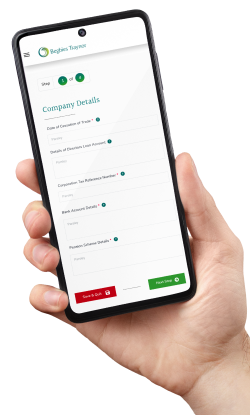A creditor is a third party that your company owes money to. It could be a bank, a supplier, HMRC or a landlord. If your business is struggling financially and enters into a formal insolvency process such as Liquidation or Administration, your creditors will be repaid in order according to a defined hierarchy. Your secured creditors are at the top of the payment hierarchy while your unsecured creditors are at the bottom.
Here we explain the difference between secured and unsecured creditors and discuss the return they can expect when a limited company fails.
Concerned about the National Insurance increase?
For the 2024-25 tax year, the rate of employer National Insurance increases from 13.8% to 15% adding yet more pressure onto already squeezed cash flows. If you are worried about the impact this could have on your company’s finances, talk to the experts at UK Liquidators. As licensed insolvency practitioners we can explain your options and help you plot a way forward. Call today on 0800 063 9262.
A secured creditor is a third party you owe money to that holds security over company assets. That means that if your business becomes insolvent, the creditor can force the sale of those assets to recoup the money they are owed.
Common examples of secured creditors include:
There are two different types of security a creditor can hold:
A fixed charge
A fixed charge is security held on a specific asset, such as a business premises, vehicle, machinery, equipment or even its sales ledger. A fixed charge has to be formally registered with Companies House. If your company fails, a secured creditor will be paid from the money raised by the sale of the asset the charge applies to.
A floating charge
A floating charge isn’t attached to a specific asset. Instead, the creditor has a claim over a type of asset. For example, the asset type could be stock, cash or work in progress. The charge ‘floats’ over these assets until the company defaults or enters an insolvency process. At that point, the floating charge ‘crystallises’ and becomes a fixed charge.
Although floating charge holders have security over company assets, they come below fixed charge holders in the payment hierarchy.
Liquidation Portal
For Company Directors

An unsecured creditor is a third party with no specific rights over a company asset in respect of the money they are owed. They rank towards the bottom of the payment hierarchy and are only above the company’s shareholders.
Common examples of unsecured creditors include:
The main difference between secured and unsecured creditors is where they appear in the repayment hierarchy when a company is liquidated.
When a company enters liquidation, its creditors are grouped into classes and its assets are sold to repay those creditor classes in the following order:
Each class of creditor has to be paid in full before the liquidator can move on to the next group. The reality is that once the liquidator has paid the secured and preferential creditors, there’s often little left for the unsecured creditors. Once the liquidator has distributed all the funds, they will close the company and any remaining debts, usually those owing to the unsecured creditors, will be written off.
Unsecured creditors are less likely to receive all the money they are owed when a company fails, so they often take action to recover a debt before it gets that far.
They have a range of powers to recover outstanding debts. They can send payment demands and charge interest on late payments. They can also issue a County Court Judgement (CCJ), use bailiffs to seize company assets, issue a Statutory Demand and even use a Winding Up Petition to force a company into liquidation.
If you have outstanding debt repayments or are dealing with pressure and threats of legal action from your creditors, contact our insolvency practitioners to arrange a free consultation. We will advise you on your options and provide expert guidance on the best route forward.
By completing the test, you will receive:
If you are considering liquidation for your company, taking expert advice at an early stage is crucial. At UK Liquidators, our team of licensed insolvency practitioners are committed to providing limited company directors with the help and advice they need to make an informed decision.




Looking for immediate support?
Complete the below to get in touch